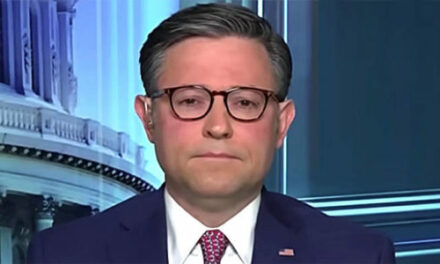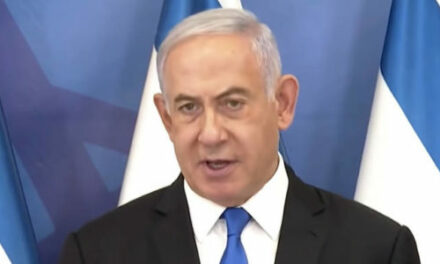We support our Publishers and Content Creators. You can view this story on their website by CLICKING HERE.
At 10:00 AM this morning, the Supreme Court will hear oral arguments today in a very important January 6th case being brought by Joseph Fischer which challenges the DOJ’s use of a statute to prosecute January 6th defendants.
This challenge isn’t just important for people arrested in the wake of January 6th. The DOJ is also using this statute in their bogus prosecution of former President Trump.
You can listen to the oral arguments below:
Here’s more specifics on the case from Politico:
The current case, however, Fischer v. United States, was actually brought by a Jan. 6 defendant, Joseph Fischer, who says that 20-year old obstruction statute — passed in the wake of the Enron financial scandal — was not intended to cover the type of conduct that rioters engaged in on Jan. 6. Rather, Fischer argues, it was supposed to be limited to classic cases of evidence-tampering, like forging or shredding documents.
Federal prosecutors reject that claim, saying the text of the law itself was written broadly to cover any attempts to interfere with an “official proceeding” — such as the Jan. 6 joint session of Congress intended to certify the results of the 2020 election — so long as they can prove a defendant acted with a “corrupt intent.” About 350 rioters have been tagged with the charge, which carries a 20-year maximum sentence.
Most of the federal district court judges in Washington, who are handling the criminal cases related to the Capitol riot, have sided with prosecutors and concluded that the law does not require proof that a defendant intended to interfere with some sort of evidence.
However, in March 2022, one federal judge, Carl Nichols, agreed with defense lawyers’ narrower interpretation. In short order, Nichols — a Trump appointee — dismissed the same obstruction charge against at least three Jan. 6 defendants.
In April 2023, a federal appeals court panel consisting of two Republican appointees and one Democratic appointee overturned Nichols’ ruling, although the appeals judges splintered on how to interpret another key provision in the obstruction statute. And a second appeals court panel taking a broader look at the law upheld the Justice Department’s view and ruled that there are several ways for prosecutors to support obstruction charges.
The justices’ views and commentary about Jan. 6 during Tuesday’s arguments could provide clues to how they will weigh the events of that day when they consider Trump’s claim that he is immune from prosecution for his bid to subvert the 2020 election. Those oral arguments are set for April 25.
A ruling against the Justice Department could even ripple into special counsel Jack Smith’s case against Trump, whom he charged with two charges of obstructing Congress’ business that day.
Smith told the justices last week that he would still press on with his obstruction case against Trump for a simple reason: Trump, he says, violated the law even under the narrowest version that the justices might say applies. The prosecutor argues that the bid to assemble false slates of presidential electors — and have them deliver signed certificates claiming to be legitimate electors — is a classic example of falsifying evidence.
A ruling on this case is expected at the end of June.

 Conservative
Conservative  Search
Search Trending
Trending Current News
Current News 





